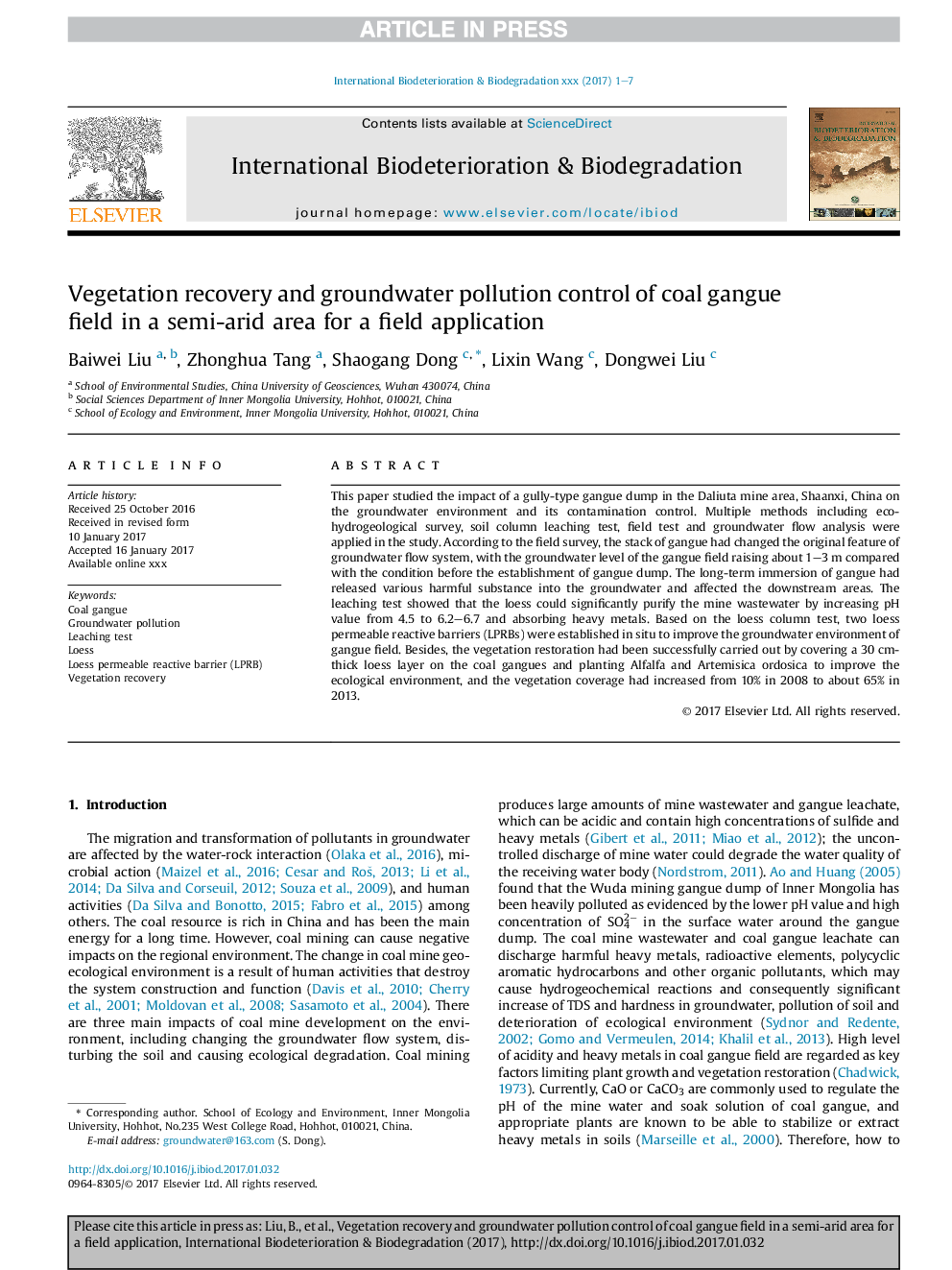| Article ID | Journal | Published Year | Pages | File Type |
|---|---|---|---|---|
| 8843910 | International Biodeterioration & Biodegradation | 2018 | 7 Pages |
Abstract
This paper studied the impact of a gully-type gangue dump in the Daliuta mine area, Shaanxi, China on the groundwater environment and its contamination control. Multiple methods including eco-hydrogeological survey, soil column leaching test, field test and groundwater flow analysis were applied in the study. According to the field survey, the stack of gangue had changed the original feature of groundwater flow system, with the groundwater level of the gangue field raising about 1-3Â m compared with the condition before the establishment of gangue dump. The long-term immersion of gangue had released various harmful substance into the groundwater and affected the downstream areas. The leaching test showed that the loess could significantly purify the mine wastewater by increasing pH value from 4.5 to 6.2-6.7 and absorbing heavy metals. Based on the loess column test, two loess permeable reactive barriers (LPRBs) were established in situ to improve the groundwater environment of gangue field. Besides, the vegetation restoration had been successfully carried out by covering a 30Â cm-thick loess layer on the coal gangues and planting Alfalfa and Artemisica ordosica to improve the ecological environment, and the vegetation coverage had increased from 10% in 2008 to about 65% in 2013.
Related Topics
Life Sciences
Environmental Science
Environmental Science (General)
Authors
Baiwei Liu, Zhonghua Tang, Shaogang Dong, Lixin Wang, Dongwei Liu,
